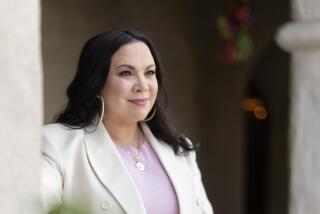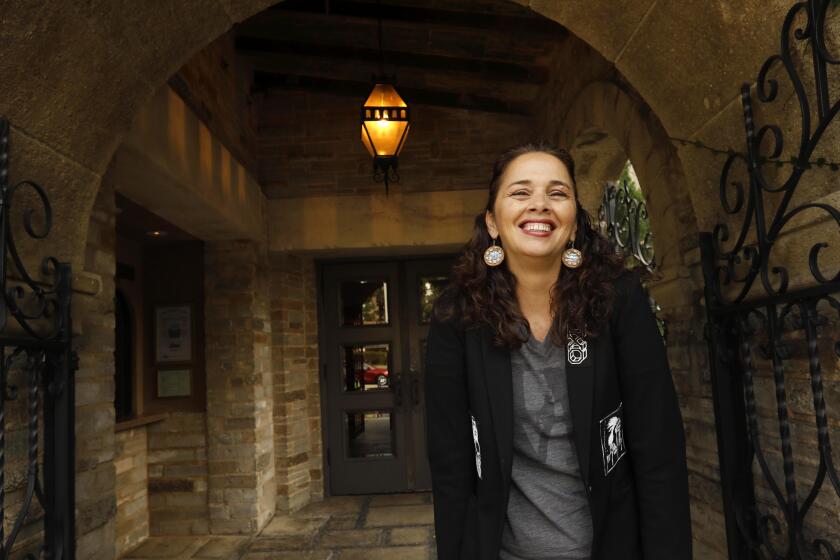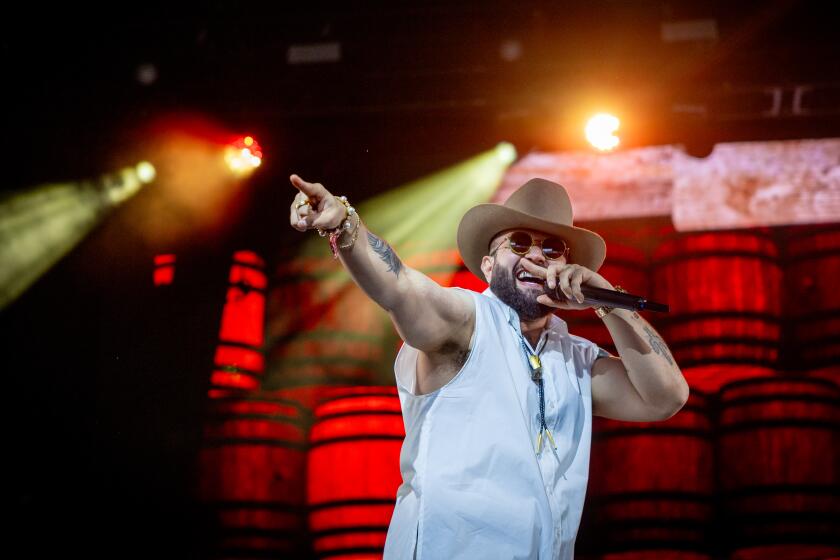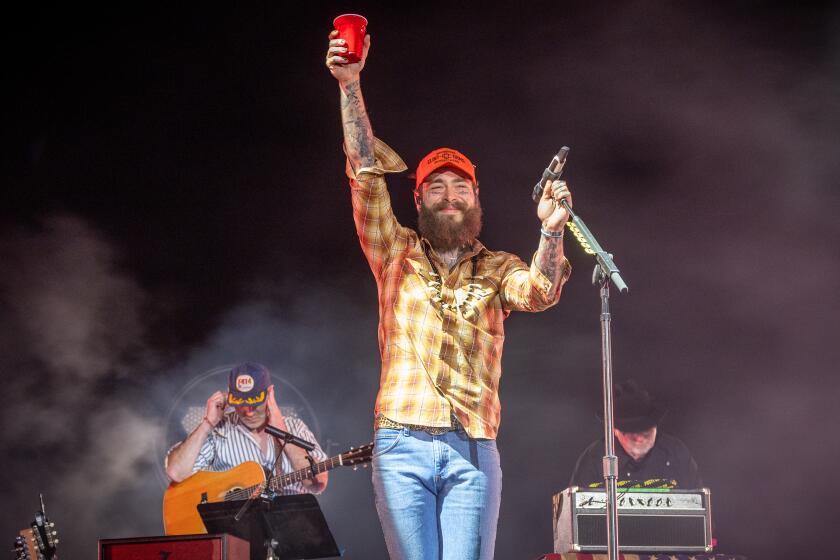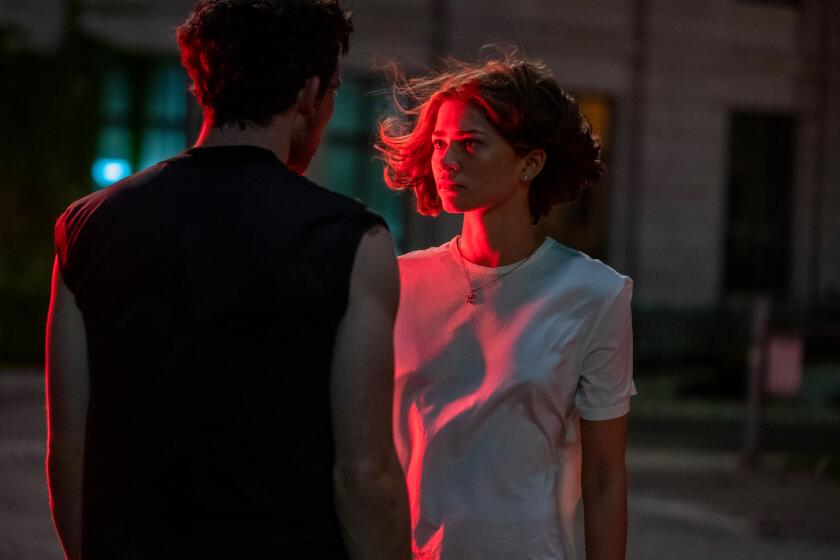The Sunday Conversation: Phylicia Rashad
Phylicia Rashad, 63, who became famous playing attorney Clair Huxtable in “The Cosby Show,” is director of the Ebony Repertory Theatre production of the classic “A Raisin in the Sun,” now at the Kirk Douglas Theatre through Feb. 19. She also rejoins Tyler Perry as his character’s mother in his new film “Good Deeds,” which opens Feb. 24.
After appearing as Lena Younger in “A Raisin in the Sun,” which won you a Tony, how did you put your stamp on this production as a director?
I wasn’t thinking about a stamp, truthfully. What I wanted to do with this production was a further investigation of the truth of human behavior and those sudden reversals of fortune that always come as a complete surprise. This is what happens in life, so we were investigating the text through that lens.
Do you think that’s part of what keeps the play fresh?
I think so. We haven’t changed a word, and yet some people who’ve seen the play comment about the freshness of the text, and the text is the same.
“Raisin” is about race and class, but “Good Deeds” is really just about class, even though it’s largely an African American cast. Apart from cultural mannerisms, those characters could be fuschia. Do you think it says something about the culture or do you think it’s particular to Tyler Perry, whom Forbes called the top earning man in entertainment last year?
I think his intended focus was on class, and in doing so he has created a film that speaks to everybody, not just one ethnicity. Let’s face it, that’s what we’re dealing with today. What’s come out today is the truth — racism has been a smoke screen all these years. It has created a false perception that somehow there is a different status because of ethnicity. Now we see the truth of the matter is it’s about class — class distinctions. Here in America, we didn’t think that was so.
Do you think class is in the forefront now as a concern, class over race? And do you expect that to be reflected in new culture?
Let me just say that to imagine racism does not exist is imagination. And to imagine that it does not create its own set of problems is true imagination. So let’s not imagine that racism is gone, extinguished, because it’s not. We are seeing this in the top levels of the political arena, and we are seeing it very, very plainly.
Another question is raised by the fact of your Tony in 2004, and that you were the first black actress to receive the leading actress award.
I didn’t know that I was the first, and when that was brought to my attention, my question was, what happened? Nobody was nominated before? Because there are many great actresses who preceded me.
It was just a few years earlier that Halle Berry became the first African American woman to win a lead actress Oscar. This is the 21st century, and there are still firsts happening.
There have been seconds. Viola Davis received a Tony Award. But you know what, when it was brought to my attention, I also commented that I didn’t realize this award was based on ethnicity. I thought it had to do with performance. Getting stuck in questions of race, you could go round and round and round in that. As artists, we do the work that we do. Receiving an award or not receiving an award in no way diminishes one’s talent or value. It’s just a party that we go to.
Speaking of Broadway, your daughter, Condola, is there now in “Stick Fly.” Were you pleased that she followed in your footsteps?
What I was most pleased about was that at the age of 3, she asked for instruction. She sat at the piano and said, “Mommy, I need a piano teacher, a reading teacher and a dancing teacher. Can you get me those things?” At 3. So that is what I’m most pleased about, and I’m also very pleased that she is so grounded in her work. You couldn’t ask for more than that. She’s grounded in her work. She attributes it to her teachers. She has had great teachers.
She certainly comes from an interesting family. Your mom, Vivian Ayers, was nominated for a Pulitzer for her poetry. And your sister, of course, is Debbie Allen. What was it like growing up in your home?
There were a lot of books, and artists frequented our home. And as children we were privy to great intellectual and artistic debates. My mother included us in everything that she did, and I mean everything. I remember as a child collating pages for her second book. It was wonderful. My mother took the handrail off the staircase and put it on the wall in what should have been the dining room to create a ballet studio for Debbie to study with a dance instructor privately when she could not be admitted to the best schools that were on the other side of town in Houston. And eventually Debbie was admitted to the Houston Ballet Foundation, but that was because of the private training she received in our home. My mother would do things like that.
My mother would move the furniture to the side, to the wall, and teach us to tumble. She’d bring all our friends in from play and teach us to read music. She was always teaching us.
More to Read
The biggest entertainment stories
Get our big stories about Hollywood, film, television, music, arts, culture and more right in your inbox as soon as they publish.
You may occasionally receive promotional content from the Los Angeles Times.

